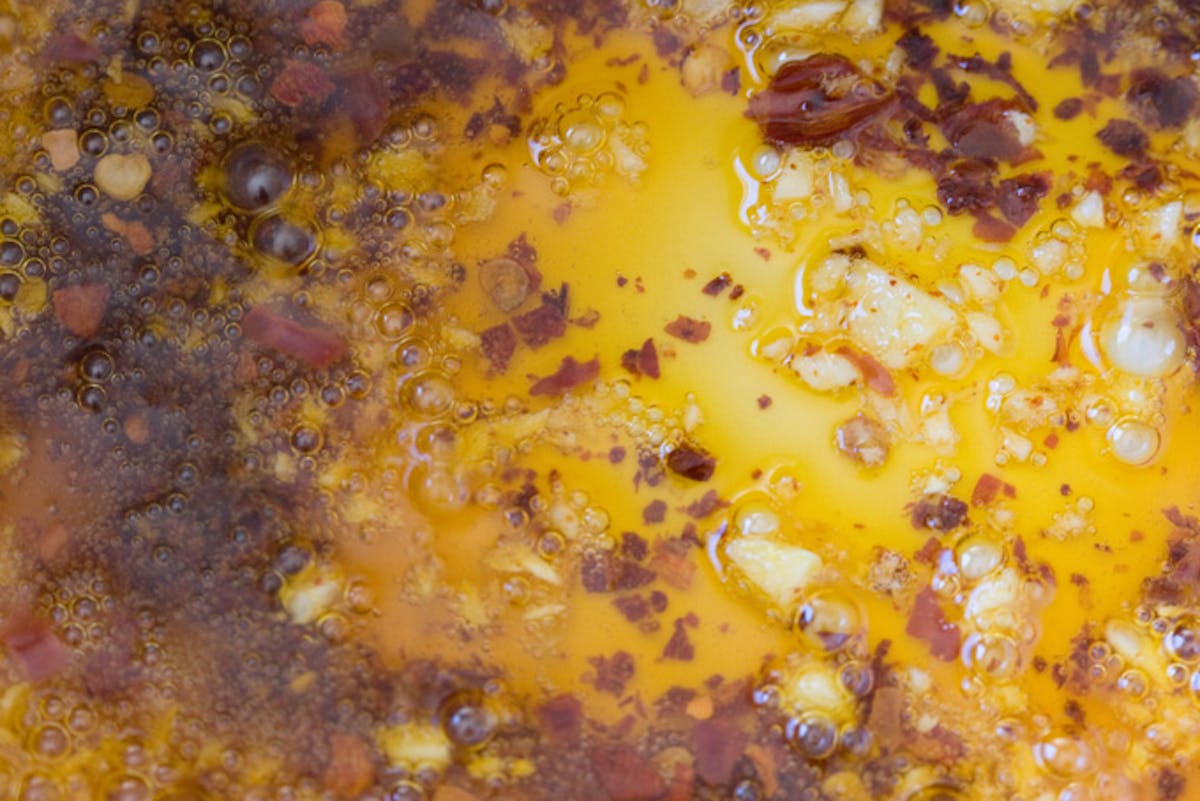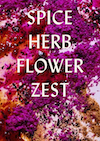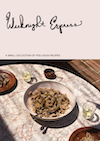A Few Favorite Fats and Oils
I get a lot of emails asking me about the ingredients I choose to cook with. People are particularly curious about the fats and oils I select, and why I choose the ones I do.

I get a lot of emails asking me about the ingredients I choose to cook with. People are particularly curious about the fats and oils I select, and why I choose the ones I do. Before we get started I should mention that I use a wide range of fats and oils in my cooking, and try to use them in a balanced way in relation to the rest of my diet.
The fats and oils I like to use for culinary use nearly always meet a few criteria. They are often made by simply pressing oil from a fruit, nut, seed, or vegetable. In all cases we are talking about fats and oils that ancient cultures have been using for hundreds/thousands of years in their traditional cooking methods. And lastly, I want my fats and oils to smell and taste of the source ingredients they are made from. In short, I like my fats and oils all-natural and minimally processed. If I can't simply explain how an oil is produced, I don't use it. I cover this in greater depth in Super Natural Cooking.
As far as the good fats versus bad fats debate goes, I'm much more inclined at this point to trust what Mother Nature has provided for us and stay clear of the fats and oils product developers have designed to market to us. When you are shopping for oils ask yourself the following questions. Is this oil organic and unrefined? Does it smell and taste like the source it came from? And can it withstand the temperature intended?
A few fats / oils I like to cook with:
Butter: Cultured organic butter tastes unlike anything else, it melts on the back of your tongue and its nutty milky flavor dances up into your nose, comforting all your senses. This is one of the best fats for baking. As with any dairy products you buy, make sure it comes from producers using sustainable, organic practices. Butter, yogurt, and milk should be free of artificial hormones and extraneous antibiotics, and the livestock should be raised in humane conditions. These products are better for you, better for the planet, and better for the animals. Two other butter-based options, clarified butter and ghee, are made by removing milk solids and water from the butter over heat. The main difference between the two is that when preparing ghee, you leave the milk solids in to toast a bit before pouring off the clarified butter; this lends a distinctive rich, nutty flavor to recipes - it also allows for higher cooking temperatures.
Coconut oil is a luxurious naturally saturated fat that's solid at room temperature. The smell of pure, unrefined coconut oil is tropical, rich, and enveloping. Many people stay away from coconut oil due to all the bad press it got over the years for being high in saturated fat, but fragrant, unrefined, natural, virgin coconut oil fits all of the criteria I look for in a good ingredient (see opening paragraphs). For vegans, or people looking to use less butter, coconut oil is often a fantastic butter substitute and one of the only unrefined vegetarian fats that isn't compromised at higher temperatures. When substituting coconut oil for butter, start by using 25 percent less coconut oil, as it is more concentrated than butter, having a lower water content.
Olive oil: If you live in region where olives are grown, you may be lucky enough to find fresh, local extra-virgin olive oil at your local farmers' market. Look for small producers who cold-press their olives. The oil can ranging from golden and buttery to grassy and green, so be sure to sample the range of flavors available. Use olive oil as soon as possible or purchase smaller bottles to start with; unlike wine, you don't want to age your olive oil. Use your best, most fragrant and flavorful extra-virgin olive oil for drizzling and seasoning recipes, not for cooking. I keep a separate bottle on hand for cooking, typically a milder-flavored extra-virgin oil, and use this for most applications that require heating the oil. Because olive oil is rich in omega-9 fatty acids, it can tolerate moderate heat. It is fine for sautéing over medium to medium-high heat, or you can pair it with a bit of water for a steam-sauté.
Sesame oil: People have long valued this oil for its distinctive flavor and rich nutritional profile. This popular oil is typically available in two varieties: plain and toasted. I use plain sesame oil to cook with when clarified butter or olive oil aren't a fit. Toasted sesame oil plays a pivotal role in many Asian recipes, and it has a special place in my kitchen as well. It sends out an immediately recognizable nutty, sultry aroma and is perfect as a seasoning on anything from noodle bowls to salads.
A few accent / finishing oils I like:
Peanut Oil: I'm starting to see the occasional unrefined, organic peanut oil for sale. The good peanut oils I've encountered smell like delicious, fragrant, warm roasted nuts. The flavor of this oil can range from quite neutral to outright peanuty. I used to avoid all non-organic peanut products after reading about the intensives chemical applications used on peanut crops to ward off disease and pests.
Pistachio oil: A culinary prize and priced accordingly pistachio oil has a rich,
sweet pistachio flavor and deep green color. I use it in no-heat preparations, including spreads, sauces, drizzles, and dressings.Pumpkin Seed Oil: Deep amber in color, pumpkin seed oil tastes exactly like the seed it is pressed from. It's great drizzled over winter squash soups, whole-grain
stuffings, and casseroles. Pumpkin oil is tolerant of medium-low heat, but I
use prefer to use it for seasoning, not cooking. It's available in both regular
and toasted varieties--both delicious.Walnut oil:A delicious treat, rich and fragrant walnut oil is another good source of omega-3 fatty acids and is perfect for drizzling on salads, risottos, gratins, and roasted root vegetables--the list goes on and on. I tend to use walnut oil later in the year, alongside all the wonderful comfort foods that walnuts complement so beautifully. Buy it in small quantities and keep it refrigerated.
Fats & oils I do not use:
Most of the oils or fats I don't use simply fail to meet the criteria I explained at the beginning of this page. For example canola, margarine, shortening, and a whole host of others fail on one point or another. I do my best to avoid foods and products that use them as an ingredient, and avoid stocking them in my pantry.
A few other rules of thumb. Use your nose as a first line of defense. If oils ever smell rancid, toss them out. Buy top quality oils, store them carefully, and heat them only to the point where they are fragrant. Refined oils that often tout sky-high smoking points can do so because they've been stripped of nutritionally beneficial components that contribute to a lower smoking point. My nose typically tell me when a fat or oil is getting too hot, and I've found that using high-quality, thick-bottomed pots and pans makes controlling the heat easy.
One last side note to keep in mind, many restaurants cook with the cheapest, lowest quality, partially hydrogenated vegetable oils they can get away with. I constantly see trucks pull up in front of restaurants and offload giant jugs of liquid shortening. I also see the empty jugs days later put out for the trash collectors. At this point most restaurants do not have to disclose the trans fat levels in their food, so don't be afraid to ask about what they are using as their cooking medium or salad dressing base.


